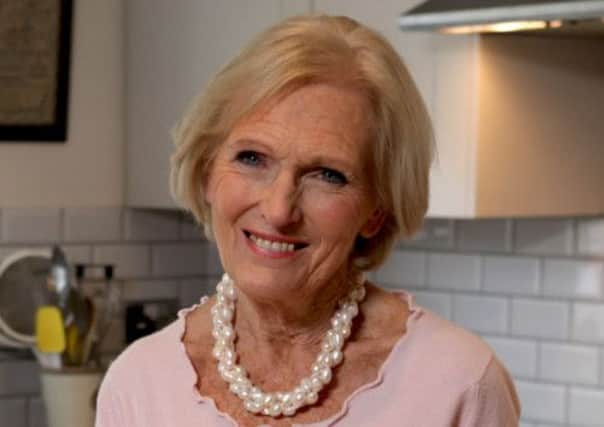Jayne Dowle: In praise of older women, especially on our TVs


When you think that women make up more than half the UK population, and we are constantly being reminded that we will all have to work until we are at least 70, this does seem both unfair and unrepresentative. Stories abound of older women in TV being sidelined, overlooked, moved to “twilight” slots and generally treated like commodities past their sell-by date.
However, as with the endless debate over skinny models versus real women in fashion magazines, politicians can influence the situation only to a certain degree. Like the magazine editors who choose those skinny models for fashion shoots, programme bosses and broadcasting chiefs make decisions for commercial reasons. If they think the public will like it and watch it, they will do it in an ultra-competitive world where there are so many other ways for viewers to seek out entertainment, information and diversion. What else can explain that outstanding anomaly to the argument Ms Harman makes – the success of cookery writer Mary Berry, who had to wait until the age of 77 before she turned into a television superstar with The Great British Bake-Off. Her particular brand of no-nonsense advice was just the right ingredient in a show which relies on a certain kind of vintage charm to elevate baking a sponge into an art-form.
Advertisement
Hide AdAdvertisement
Hide AdThe spin-offs and brand-awareness generated by The Great British Bake-Off have spiralled into broadcasting legend, so I think I’ll put “commercial advantage” at the top of my 10 reasons why it makes sense to keep older women on screen.
To that I will add “authority” and “experience”. My husband still yearns for the reassuring presence of Martha Kearney on Newsnight, who could always be relied upon to referee informed debate without turning a global crisis into a disaster. These days, at the age of 55, she mostly presents Radio 4’s The World at One, while Jeremy Paxman, now 63, still appears on-screen, albeit less frequently now. And whether you love them or loathe them, veteran business “gurus” Margaret Mountford (The Apprentice) and Hilary Devey (Dragon’s Den) proved that women in business do mean business and offered themselves as interesting role models to the younger contestants, not that most of the younger contestants ever seemed to take much notice, but that’s the young for you.
Too often, this debate seems to focus on the negative; it concentrates too much on what older female presenters lack, and not enough on what they can offer. Instead of admiring the professionalism that several decades in the job bring, we are all more than a bit guilty of obsessing over the perceived need for perfection, like poring over the details of Sky News presenter Kay Burley’s facelift which she underwent at the age of 50. We should look beyond the superficial and never under-estimate the power of knowledge either. Although the acerbic Cambridge don, Professor Mary Beard, 58, might not be everyone’s perfect dinner guest, she always has an interesting point of view to bring to the party.
Undeniably intelligent, but almost the polar opposite of Prof Beard is Victoria Wood, who recently turned up on the BBC presenting a two-part special on the history of tea and turned 60 yesterday.
Advertisement
Hide AdAdvertisement
Hide AdIf ever a woman reassured other women that it is perfectly OK to possess a face that looks like it laughs a lot, and to own a body clearly built for comfort not 6am work-outs, it is Victoria Wood, so to my list, I will add “reassurance”.
And on that note, let’s remind ourselves that television is not just the bright, shiny playground of the young. Those endless hours of daytime have to be filled with programmes which older people at home enjoy. On this front march the inspirational trio of Angela Rippon, 68, Jennie Bond, 62 and Gloria Hunniford, 73, who join formidable forces on the BBC’s consumer programme Rip Off Britain, one of the BBC’s most successful daytime shows.
Commercial advantage, authority, experience, role models, professionalism, knowledge, intelligence, reassurance and inspiration – these are all good reasons to have older women on screen.
But if that toxic combination of ageism and sexism is left unchecked, we will soon face a perfect storm. From Clare Balding to Emily Matlis to Kirstie Allsopp, many of the nation’s favourite female presenters are already in their 40s. This is where attention really should be focussed, because this is the talent which broadcasting and production companies has seriously invested in and promoted, and letting them all fall like dominoes when they hit 50 seems downright mad to me. Whether Ms Harman’s campaign makes an iota of difference or not, it is, at least, one television drama that none of us can afford to miss.